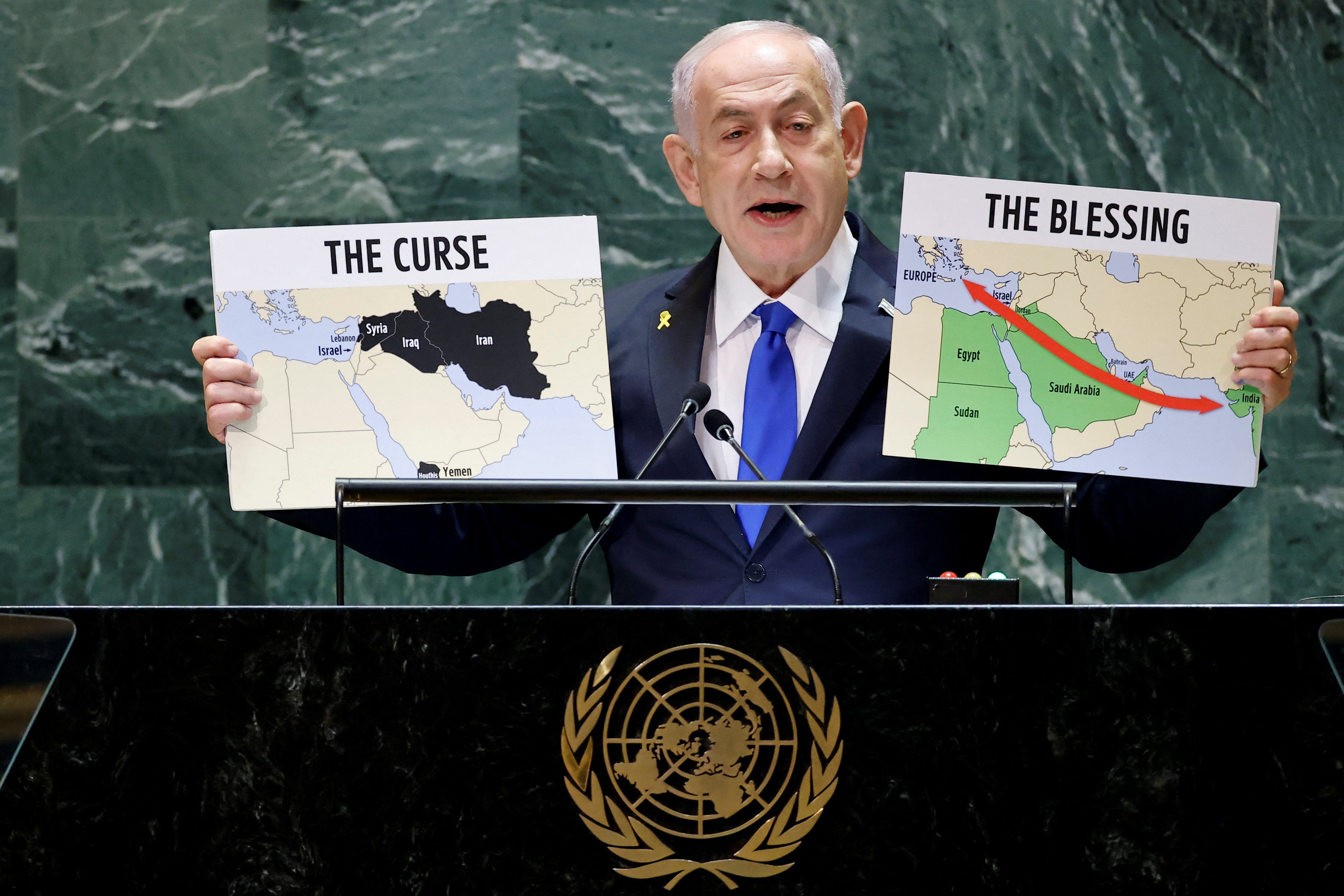UNITED NATIONS — Israel's Prime Minister Benjamin Netanyahu gave a defiant speech at the UN on Friday, framing Israel’s campaigns in Gaza and Lebanon as a fight for the country’s survival, while criticizing the UN as “a swamp of antisemitic bile.”
He spoke to a nearly empty General Assembly hall thanks to a walkout by a number of national delegations. Meanwhile, in the press gallery, which is open to an UNGA attendees, a group of supporters shouted “Bibi I love you” while others booed.
The display showed how divided the UN is on the escalating situation in the Middle East. But Netanyahu’s stance was clear: Israel is acting in self-defense, and for that reason, it has no plans to stop fighting.
“It’s not about Gaza,” he said of criticism over his government’s handling of the war, which has so far left over 41,000 people dead according to the Health Ministry in Gaza. “It’s about Israel. It has always been about Israel. About Israel’s very existence.”
Netanyahu made no mention of the international efforts taking place at the UN to broker a cease-fire between Israel and Lebanon.
The Israeli leader insisted that the military would keep striking Hezbollah with “all our might,” and dwelled on Hezbollah’s use of human shields, likely an indication that the civilian death toll in Lebanon, which has reached more than 700 people since Monday, is likely to rise.
“Hezbollah fires missiles from schools, from hospitals, from apartment buildings,” he said. “Hezbollah endangers its own people. It has put a missile in every kitchen, in every garage.” In recent days, Israel has signaled it may be preparing a ground invasion of Lebanon in order to uproot Hezbollah. (Read more here.)
Looking to the future, Netanyahu presented two maps, laying out Israel's desired future for the Middle East. One was labeled “the blessing” — which showed a vision of “Israel connected to Europe” with “rail lines, fiber optic cables, to serve the betterment of 2 Million people” — and the second “the curse” — a map showing the same area, which he described as “Iran’s arc of terror.”
He directly warned Iran, which backs Hamas, Hezbollah, and other proxy groups in the region that have attacked Israel.
Within hours of his address on Friday, the Israeli military said it carried out an airstrike on the central headquarters of Hezbollah in Beirut. By early Saturday, it had been confirmed that longtime Hezbollah leader Hassan Nasrallah was killed in the strike.
